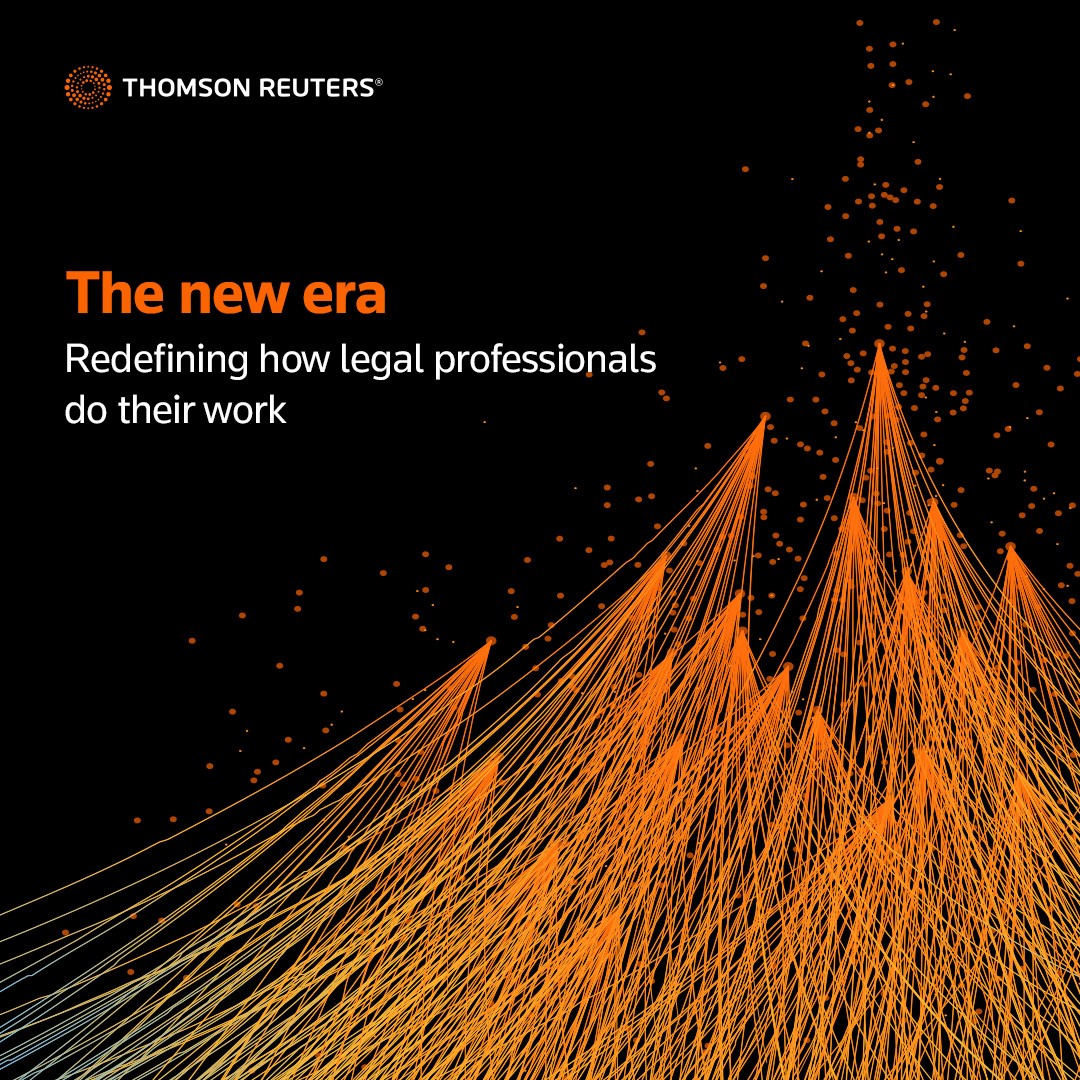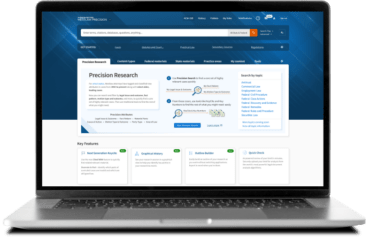You may be wondering what AI-enhanced legal research technology can do for you and your law firm.
Whether you realize it or not, AI and machine learning are already a part of your everyday life. When you use a navigation app to see the fastest route to your destination – AI. When you ask your smart home device what time your favorite store opens – AI. And when your streaming device suggests shows you might like – yes, that’s AI, too.
While AI is becoming more and more mainstream in our homes, it’s also making its way into our jobs.
Jump to:
| Is there AI for legal research? |
| Can AI help me build a better case strategy? |
| Can AI help me keep my clients happy? |
| Can AI improve my due diligence? |
| Make your law firm even better |
Is there AI for legal research?
Together, AI and legal research is not only a reality, but a necessity in today’s competitive and demanding legal market. Legal research is one of the most time-consuming and costly tasks for legal professionals. It requires finding, analyzing, and synthesizing relevant information from various sources, such as statutes, case law, regulations, journals, and news articles.
The right AI for legal research is equally important, especially with the rise of generative AI technology. While using free resources may seem enticing, paid resources are much more trustworthy; helping you avoid missing important information, comply with the relevant rules and regulations, and uphold the integrity and reputation of the legal profession.
AI can help you:
- Find the most relevant and authoritative sources for your legal issue, by understanding the context and meaning of your query, and ranking the results according to their relevance, recency, and citation frequency
- Extract key facts, arguments, holdings, and precedents from the sources you find, by using natural language processing to identify and summarize the main points of each document
- Compare and contrast different sources, by using machine learning to detect similarities and differences among them
- Generate insights and recommendations from your research results, by using data analytics to identify patterns, trends, anomalies, and gaps in the legal information
Among many other benefits.
AI will allow you to:
- Save time on your research tasks
- Improve the quality and accuracy of your research outputs
- Enhance your legal reasoning and creativity by finding new perspectives and approaches to your legal problem
- Advance your firm’s reputation and success
What else can AI-powered legal research do for you? Here are some common questions:
Can AI help me build a better legal case strategy?
AI-powered legal research technology helps you build a stronger legal case strategy by giving you unprecedented insight into lawyers, judges, courts, and damages — just to name a few. Information that was once gleaned primarily from anecdotes and personal experience is now based on data-driven knowledge.
All of this means you can build an even stronger case strategy with a better understanding of previously uncertain aspects of your case, like how often your judge grants summary judgment motions or which court would be best for your client’s matter.
Can AI help me keep my clients happy?
AI can help you communicate more effectively with your clients by equipping you with the best information. The same data and insights that help you build a better case strategy also helps you give your clients the reassurance they need.
Your clients want to know everything. They want to know how much this is going to cost them. They want to know how long it’s going to take. They want to know their chances of a successful outcome.
By using AI to enhance your communication with your clients, you can save time, increase engagement, and build trust. You can show your clients that you care about their needs and goals and that you are always ready to listen and respond. You can also demonstrate your expertise and thought leadership in your field.
Can AI improve my due diligence?
AI-backed legal document analyzing tools go through your documents with the fine-tooth comb of your dreams. This means you can be confident you’re turning in a memo or brief that is ironclad and that you didn’t miss a thing.
Before this technology, you would likely be double-checking your work. Triple checking. No matter the number, the process is the same. You drafted your memo or brief and then you reviewed it time and time again. It’s not the most efficient method or the most cost-effective — you likely can’t bill your client for your perfectionism.
You’ve got the strongest authority and your citations and quotations are verified. That assurance is second to none, but closely following is being able to check your opponent’s work product with the same level of detail. Did they accidentally (or otherwise) misquote a case? Did they reference case law that has since been overturned? They might not have realized this … but you did. And all of this is due to the AI that is now the standard in legal research.
Make your law firm even better
The power of AI and legal research technology gives firms the second (and third and fourth and fifth and …) set of eyes they desperately wish they had but can’t realistically count on or build into the workflow. It gives attorneys the extra confidence they need when they work with their clients or enter the courtroom.
Your firm can be even better in less time with fewer write-offs with modern legal technology that uses the power of AI. That means more successful outcomes and clients that spread the word.
 | In a recent webcast, Head of Westlaw Product Management for Thomson Reuters Mike Dahn shared examples of how generative AI will help legal researchers using Westlaw. Watch today, “The new era – redefining how legal professionals do their work.” |










